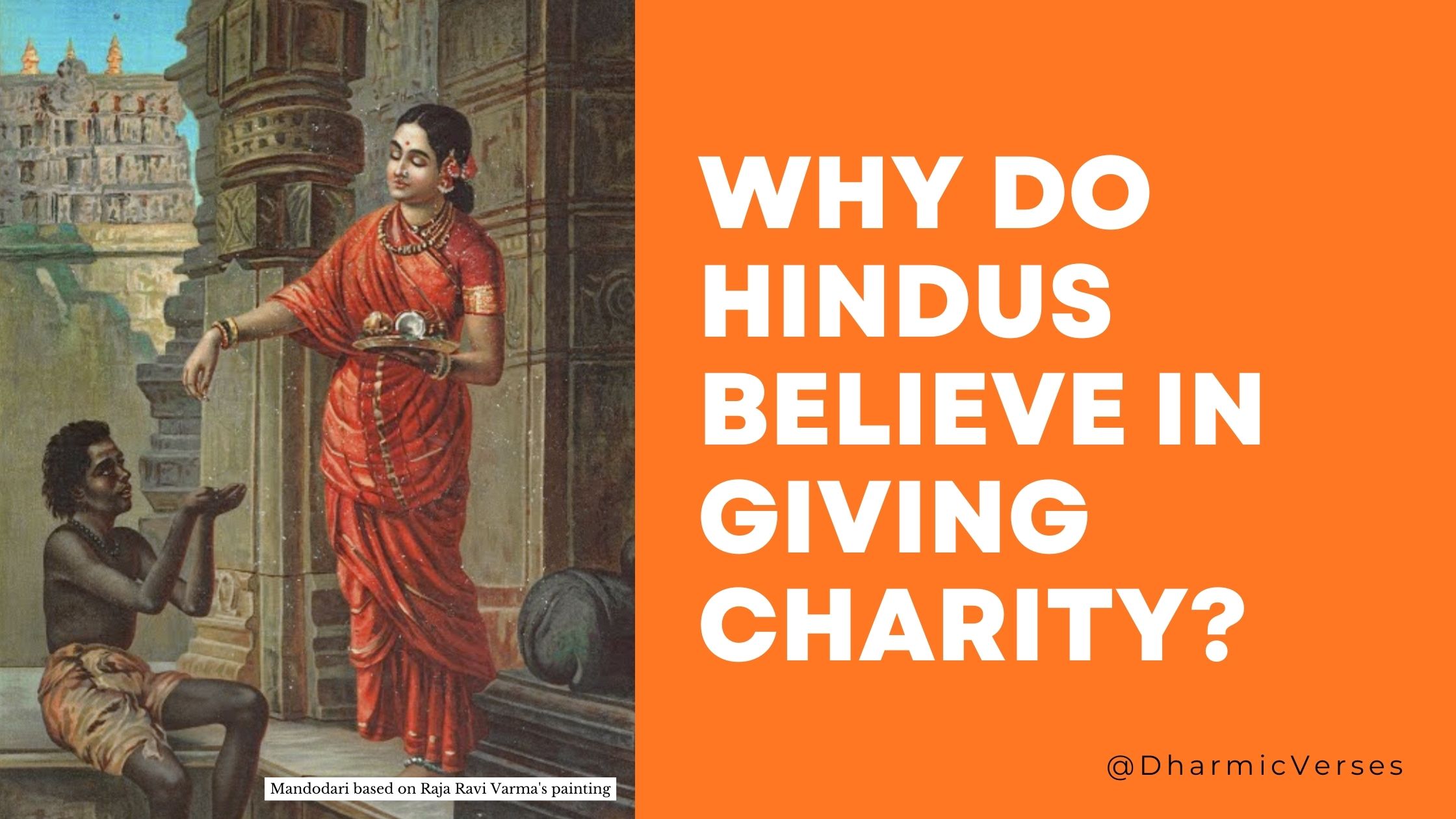Why Do Hindus Believe in Giving Charity/Daan?
Hindus have a strong tradition of giving charity, known as daan in Sanskrit. Charity and compassion have been the two pillars of Indian culture through the ages. The concept of daan is one of the oldest religious concepts propagated in ancient India. The practice of charity and selfless giving is deeply ingrained in the Hindu way of life and finds mention in numerous scriptures. There are multiple reasons why Hindus believe in and practice the virtue of daan.
One of the main reasons is that charity is seen as a religious duty according to the Hindu scriptures. The Vedas, the oldest and most sacred scriptures of Hinduism, extol the virtue of charity. The Rigveda mandates daan as an obligatory duty, stating “Give, O generous one! The prosperous who gives freely enjoys life to the full. One of the hymns of the Rig Veda states: ‘Wealth of a person never diminishes by charity.’ To give without asking is the attribute of God, who gives light to all through the sun, provides water to sustain life through rivers, and the vital air to breath. When a man practises charity, his behaviour is likened to that of God. In return, nature rewards a man by compensating tenfold for his beneficent acts.
The Bhagavad Gita follows the Upanishads in upholding the virtues of charity. It speaks of three kinds of charities: satvik, rajasik and tamasik. Satvik charity is given out of a sense of social duty, without any expectation of repayment. Rajasik charity is given with the desire of begetting some result. And tamasik charity is one which is given insultingly.
Giving food and water is considered the highest form of charity. The Mahabharata enjoins people to build water reservoirs and dig wells. Planting trees is also considered an altruistic act.The ‘Shanti Parva’ from Mahabharata prohibits the householder from enjoying wealth and fruits of labour alone.
In the past, people built dharamshalas, orphanages and temples as great acts of daan. Certain days were prescribed when acts of charity were mandatory. For instance, on the day of nirjala ekadashi, people offer water or sherbet to passers-by. Similarly, on eclipse days, Hindus offer grains, salt and money to the underprivileged.
Wealth or money for charity must be earned through honest ways; otherwise the donation will bear no result, thus states the Garuda Purana. Donations should only be given to genuinely needy and deserving people.

Feeding animals, birds, insects and watering plants and trees are also considered a form of donation. These activities heal our karmas and help take away some of our problems. When these life forms share our food, kitchen and water resources, they in return share our sorrows too, and thus reduce our karmic debts.
Giving charity is upheld as a religious duty and virtue in Hindu scriptures. The Vedas and Upanishads extol the virtue of daan as an obligatory duty that leads one on the path of liberation. Charity is seen as an expression of spirituality since it is given selflessly, without attachment. It leads to purification of mind and accrues positive karma for future lives. Through charity, a person fulfills his dharma and helps uphold social balance and harmony. Practicing daan is considered the mark of a noble soul according to Hindu philosophy.
The spirit of sharing inherent in daan exemplifies the idea that “there is more happiness in giving than receiving.”


Comments are closed.